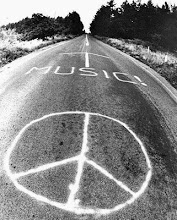
1.Dusa ostana
2.Nikoja kako tebe ne baknuva
3.Boze cuvaj ja od zlo
4.Mesecina
5.Igri bez granici
6.Srekna li si ti
7.Najdraga moja
8.Jas ne sum vinoven
9.Cresa
Bonus:
-Ostala si uvijek ista
-Volim osmijeh tvoj(with A.Solja)
-Feeling good
-Vezi me za sebe
-Srce nije kamen
Proeski, was born in Prilep,[5] Republic of Macedonia, to Dominika and Nikola Proeski from Kru?evo, his hometown,[5] where he spent most of his childhood. He raised in 32 Tome Nikle street in Kru?evo. After his musical talent was discovered at the age of 12, he was chosen to perform at the popular children's song festival Zlatno Slavej?e in Skopje.[6] [7] This was his first public music performance; however, his successful career began in 1996 when he participated in the teenage music festival Melfest in Prilep.
Following this public exposure, he was awarded for his strong vocal capabilities. This led to his rise to fame when he participated in the music festival Makfest in ?tip with the song "Pusti Me" ("Let Me Go") in 1997. His fanbase quickly grew and he continued to make use of festivals, such as SkopjeFest and OhridFest, as a platform for promotion and publicity. Proeski collaborated with one of Macedonia’s acclaimed lyricists and composers, Grigor Koprov, to produce some of the greatest hits of his career such as "Usni na Usni" ("Lips on Lips") and "Sonce vo Tvoite Rusi Kosi" ("The Sun in Your Golden Hair"). In 1999, he released his debut album, Nekade vo Nokta (Somewhere in the Night), which contained eleven tracks. In the summer of the same year, Proeski performed his first solo concert in Skopje.To improve his singing, Proeski took classes in New York from maestro William Riley, who was also coach to famous tenor, Luciano Pavarotti. When he returned, Proeski held humanitarian concerts throughout the Republic of Macedonia. He was awarded with the Mother Theresa Humanitarian Award and in 2003 he became a Regional UNICEF Ambassador.
In 2004, MKTV chose Proeski to represent Macedonia at the 2004 Eurovision Song Contest in Istanbul, Turkey, and in February, he performed eight songs, where a jury, televote, and his own opinion chose the song. The song "Angel Si Ti" ("You’re an Angel") was chosen by all three. In April, Proeski released his album "Den Za Nas" ("A Day For Us"), which featured the eight songs from the Eurovision selection in Macedonian.
The Serbian edition "Dan Za Nas" featured only six of the national final songs in Serbian and "Life" in English. This song was not recorded in Serbian.
In May, Proeski finished 14th with the song "Life", which was the English version of "Angel Si Ti”. Prior to the contest he was popularised by reporters due to his tremendous opera singing ability, at his press conferences.
All eight songs were recorded in English, but only the winning song of the national final "Life" was released. During the TV national final show, after each song was performed, a clip of the song was played in English to show viewers how it would sound if that song won the contest and was performed in English at the Eurovision Song Contest 2004 final.
In 2004 Proeski was named a UNICEF Goodwill Ambassador, and recorded the song "This World" which became the UNICEF anthem. Proeski signed a contract with Dallas Records so his next album could be released in Croatia and Slovenia. To establish himself in these countries, Proeski recorded "Krajnje Vreme” with Slovenian singer, Anja Rupel. In 2005, To?e’s fifth album Po Tebe (After You) was released throughout ex-Yugoslavia. Po Tebe, was one of the most successful Balkan albums ever. It topped music charts for months in the Republic of Macedonia, Serbia, Croatia, Slovenia and Bosnia and Herzegovina.
Bo?ilak (Rainbow), was a compilation of 14 selected traditional Macedonian songs arranged by Sasa Nikolovski Gjumar, Ilija Pejovski and Soni Petrovski. The artist was backed up by a symphony orchestra on the album.
His last album Igri Bez Granici (Macedonian title)/'Igra Bez Granica' (Croatian title) ("Game Without Borders") was released all over ex-Yugoslavia in August, 2007.
Apart from songs in Macedonian and Serbian or Croatian language, he also recorded one song in Slovenian, "Moja" ("Mine") in 2007, and one in Italian, "Aria" ("Air"), with Italian superstar, Gianna Nannini. List of artist who collaborated with Proeski include Anja Rupel, Antonija ?ola, Bora ?orba, Karolina Go?eva, Esma Red?epova, Gianna Nannini, Goca Tr?an, Grigor Koprov, Jeff Beck, Tony Cetinski, ?eljko Joksimovi? and other notable musicians. Prior to his death, he was a student in his final year in the solo singing department of the Skopje Music Academy.During the early morning of October 16, 2007, at 6:20 a.m., Proeski died in a car accident on the Zagreb–Lipovac highway near Nova Gradi?ka, Croatia. He was a passenger along with his manager Ljiljana Petrovi? in a Volkswagen Touareg driven by Georgij Georgijevski. The Touareg crashed into the back of a truck and then into the median barrier, killing Proeski instantly, crushing the third vertebrae of the neck, although the truck sustained no damage. Proeski was asleep in the front passenger seat at the time of the crash.[10] Of the other two passengers, only the driver suffered serious injuries (head trauma).
Proeski's body arrived at midnight in Skopje by helicopter of the Macedonian army, and was transported by car to his home town Kru?evo. Grieving citizens gathered to pay their last respects at the airport and also in Macedonia Square. The Embassy of the United States of America, the USAID and the Diplomatic mission of the European Union published official statements on the death of To?e Proeski.[11][12][13] October 17 was pronounced a national day of mourning in Macedonia.[4] The three days following his death were pronounced days of mourning in the City of Kru?evo.[14]
After his death, the government of the Republic of Macedonia, gave him the title "Honorable citizen of Macedonia.

![Tose Proeski[1981-2007]IN MEMORY](http://www.toseproeski.info/wbstorage/articles/1bbb4db1c211914ca161b4ed512e6230.jpg)
No comments:
Post a Comment